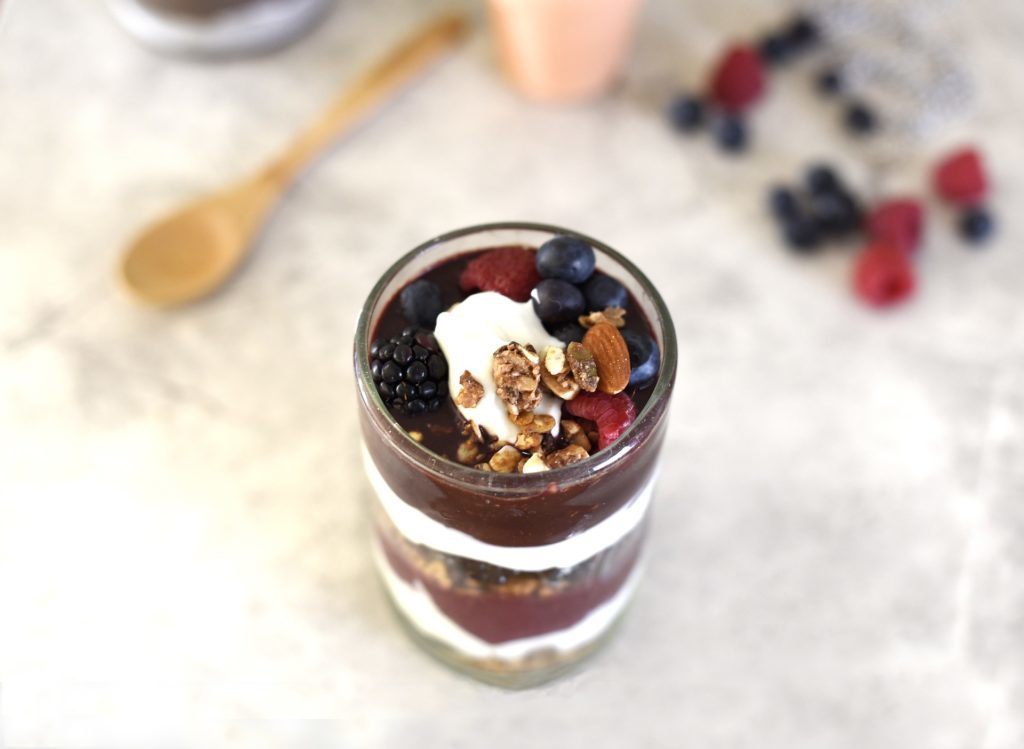Yogurt with live cultures can provide numerous benefits beyond just providing solid nutrition to the body. Yogurt with live cultures contains good bacteria known as probiotics. Below we have provided several benefits to consuming yogurt with live cultures. We are many years away from learning about the totality of all benefits of probiotics. The benefits below have had positive research conduct showing promising results in treating or preventing various problems within the body.
Yogurt with Live Cultures Benefits
Live cultures in yogurt (probiotics) provide numerous health benefits and can aid in treating health problems related to the bowels and other areas of the body. Studies have shown that probiotics may help aid or treat these gut related problems/diseases:
- Diarrhea (virus, bad bacteria, and antibiotics) – probiotics can decrease the length of time that diarrhea persists by likely fighting unwanted bacteria in the gut [source]
- Irritable Bowel Syndrome (IBS) – probiotics may play a role in treating IBS or may help alleviate some of the symptoms [source].
- Inflammatory Bowel Disease (IBD) – consumption of yogurt with live cultures (Lactobacillus) is believed to promote anti-inflammatory properties in the body, which may be beneficial to someone with IBD. [source]
- Food Poisoning Treatment – probiotics may help alleviate food poisoning by reducing the pathogens that cause salmonella [source].
- Protect Against Ulcers – probiotics may help protect the lining of the stomach by fighting the bad bacteria that can wreak havoc on the stomach.
Below are some additional benefits of probiotics not related to the gut:
Immune System Booster – studies have shown that yogurt may help boost immunity especially for people that tend have weaker immune systems like aging adults [source].
Prevention of Yeast Infections – the probiotics in yogurt may help prevent or eliminate a yeast infection. It is believed that the good bacteria creates an unwelcoming environment for the yeast by lower the body’s pH level [source]. Look for yogurt that contains L. acidophilus, which is believed to be the live culture that wards off yeast infections.
Yogurt with Live Cultures Brands
You should look for the seal on the yogurt label that reads “Live & Active Cultures” or similar verbiage to ensure the product contains live cultures. While all yogurt is initially made with live cultures, the cultures can be killed off if the manufacturer heat treats the yogurt to prolong shelf life. The U.S. Food and Drug Administration requires yogurt to be labeled “heat treated after culturing” if the manufacturer opts to heat treat a product. Always choose yogurt that you know is made with live cultures & active cultures to receive the benefits of probiotics.
Below we have provided a selection of yogurt products that contain live and active cultures along with the types of cultures that are in some or all of their yogurt. Please read the label or contact the manufacturer for the current live cultures information. Note that while we only provided a sampling of brands below, there are many more brands that contain live and active cultures.
Brown Cow – S.Thermophilus, L. Bulgaricus, L. acidophilus
Chobani – S.Thermophilus and L. Bulgaricus
Fage – S.Thermophilus, L. Bulgaricus, L. acidophilus, Bifidus, L. Casei
Noosa – S. Thermophilus, L. Bulgaricus, L. Acidophilus, Bifidus, and L. Casei
Organic Valley – L. acidophilus, Bifidus, L. casei
Siggi’s – S. thermophilus, L. delbrueckii subsp. bulgaricus, B. lactis, L. acidophilus, L. delbrueckii subsp. lactis
Stonyfield – S. Thermophilus, L. Bulgaricus, L. Acidophilus, Bifidus, L. Rhamnosus, and L. Paracasei
Straus Family Creamery – S.Thermophilus, L. Bulgaricus, L. acidophilus, Bifibacterium lactis
The Greek Gods – S. Thermophilus, L. Bulgaricus, L. Acidophilus, Bifidobacerium, L. Casei
Wallaby Organic – S.Thermophilus, L. Bulgaricus, L. acidophilus, Bifidus

